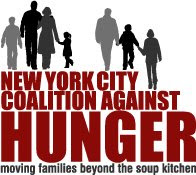 In “Farmer in Chief,” published in the New York Times on October 12th, Michael Pollan proposed a new food agenda (the “sun-food agenda”) to “wean the American food system off its heavy 20th-century diet of fossil fuel and put it back on a diet of contemporary sunshine.” Pollan characterizes hunger in the
In “Farmer in Chief,” published in the New York Times on October 12th, Michael Pollan proposed a new food agenda (the “sun-food agenda”) to “wean the American food system off its heavy 20th-century diet of fossil fuel and put it back on a diet of contemporary sunshine.” Pollan characterizes hunger in the Pollan’s proposal incorrectly explains the underlying causes of hunger in the
In addition to glossing over the real problem of hunger, Pollan’s suggestion that the federal government start preventing low-income families from using food stamp benefits to purchase what he deems to be junk food is also class biased and unrealistic. Who is he to decide that low-income American families could never again enjoy guilty pleasures like Coke? Who is to decide what qualifies as junk food?
Pollan also argues that creating a federal definition of “food” would “improve the quality of school lunch and discourage sales of unhealthful products.” However, the WIC and School Lunch Programs already value nutritional content over raw calorie counts. For example, under federal law, school lunches must be served in accordance with the Dietary Guidelines for Americans, ensuring that less than 10 percent of calories come from saturated fat and requiring that each lunch provides at least one-third of the recommended levels of Vitamin A, Vitamin C, iron, and calcium.
In the end, low-income Americans cannot access healthy food that is neither physically available nor economically affordable. The answer is not, as Pollan suggests, to reduce the already meager choices available to low-income Americans by creating a federal definition of food. Rather, hunger in

No comments:
Post a Comment